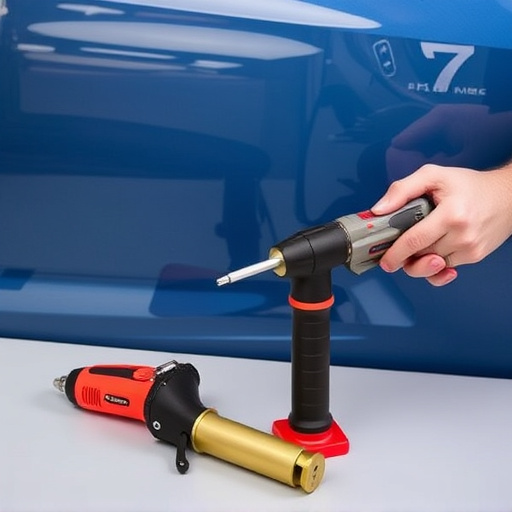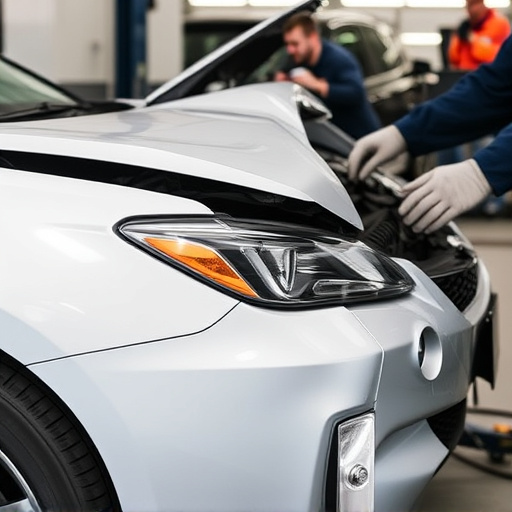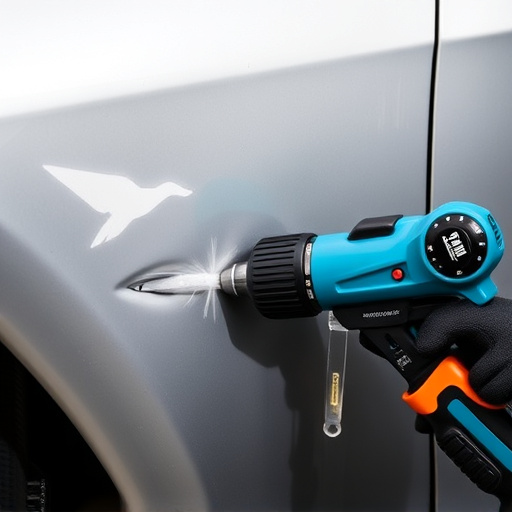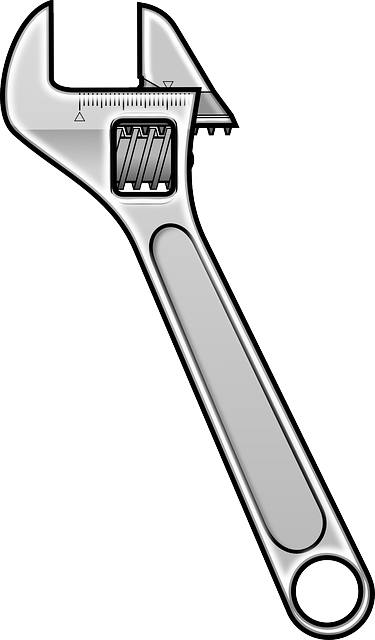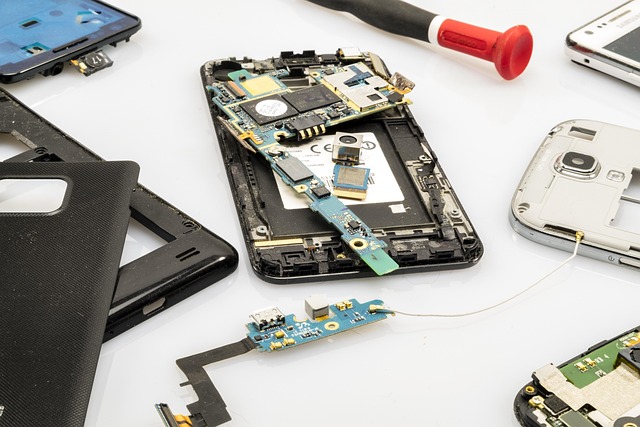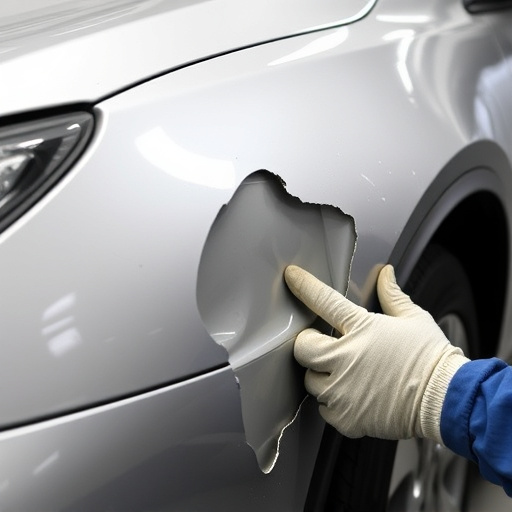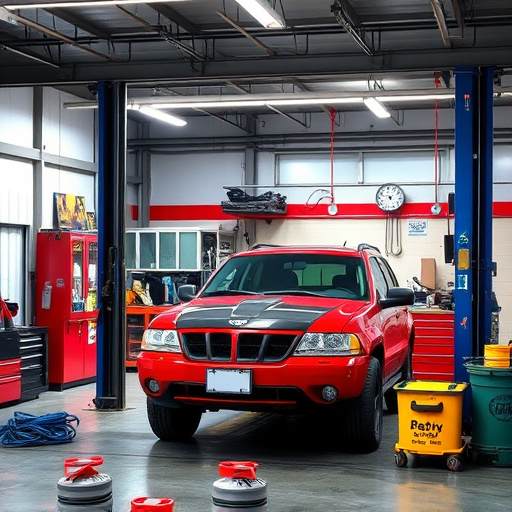Auto body technicians are essential in repairing and restoring damaged vehicles, ranging from minor dents to structural overhauls, using advanced techniques and modern materials. To advance their careers, they should pursue certifications in frame straightening and auto collision repair, which enhance their reputation and open doors to better opportunities. The future of auto body certification is transforming with technological advancements, requiring continuous learning through online courses and workshops to keep up with complex repairs involving new vehicle technologies like electric powertrains.
In today’s competitive automotive industry, understanding the crucial role of auto body technicians is essential. These professionals play a vital part in ensuring the safety and aesthetics of vehicles, demanding a unique blend of technical skills and expertise. This article explores what certifications matter most for auto body technicians, delving into key credentials that drive career advancement and examining the evolving landscape of auto body certification and skills development.
- Understanding the Auto Body Technician Role and its Requirements
- Key Certifications and Their Impact on Career Advancement
- The Future of Auto Body Certification and Skills Development
Understanding the Auto Body Technician Role and its Requirements

The role of an auto body technician is multifaceted and crucial within the automotive industry. These professionals are responsible for repairing and restoring damaged vehicle bodies, ensuring they are structurally sound and aesthetically pleasing. They work on various tasks, from minor dent repairs to major structural overhauls, often involving complex frame straightening and panel replacement techniques. Auto body technicians need a deep understanding of car bodywork, including the ability to diagnose issues, use specialized tools, and follow safety protocols.
To excel in this field, technicians must possess practical skills honed through formal training or certifications. They should be adept at working with different materials used in modern vehicle construction, such as lightweight alloys and advanced composites. Additionally, staying up-to-date with industry standards and technological advancements in car bodywork, like precision measuring systems and computer-aided design software, is essential. With these skills and knowledge, auto body technicians ensure that vehicles not only run smoothly but also look their best, contributing to customer satisfaction and safety on the road.
Key Certifications and Their Impact on Career Advancement

For auto body technicians aiming to advance their careers, key certifications can open doors to better job opportunities and higher earning potential. Among the most impactful are those focused on frame straightening, a critical skill for ensuring vehicles return to their original structural integrity after an accident. Certifications in this area demonstrate proficiency in complex repair techniques, enhancing an technician’s reputation within the industry.
Additionally, certifications in auto collision repair further elevate a technician’s value. Earning these credentials signifies a deep understanding of modern vehicle construction, advanced repair methods, and safety standards. Such qualifications are highly sought after by reputable auto collision centers, where skilled technicians play a vital role in restoring damaged vehicles to their pre-accident condition.
The Future of Auto Body Certification and Skills Development

The future of auto body certification and skills development is poised for significant evolution. As technology advances, the industry shifts towards more specialized and advanced training programs. Auto body technicians are no longer just fixing dents; they’re now expected to master complex repair processes involving advanced materials and precision techniques. This demands a continuous learning curve that goes beyond traditional certifications. Online courses, virtual simulations, and hands-on workshops are becoming integral parts of training, enabling technicians to keep pace with the ever-changing automotive landscape.
The demand for skilled auto body technicians will continue to grow as vehicles become increasingly sophisticated. Certification programs will need to adapt by incorporating new technologies like autonomous driving systems, advanced safety features, and electric vehicle repairs. Specialized certifications in areas such as hybrid and electric vehicle repair, along with enhanced collision repair techniques, will become highly sought after. This evolution ensures that auto body technicians are not just keeping up with the times but leading the way in shaping the future of automotive maintenance and repair.
For auto body technicians, staying ahead in this competitive industry requires a blend of practical skills and recognized certifications. While the role demands a deep understanding of various techniques, specific credentials can significantly enhance career prospects. By investing in key certifications, technicians not only demonstrate their expertise but also open doors to better job opportunities and advanced roles within the automotive field. As the industry continues to evolve, keeping up with the latest certification standards will remain crucial for auto body technicians seeking long-term success.
